MUNIMAP. Poland is preparing a plan to destroy chemical weapons in the Baltic Sea
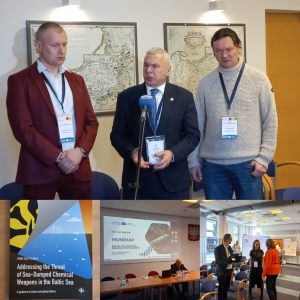
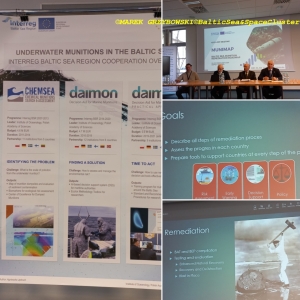
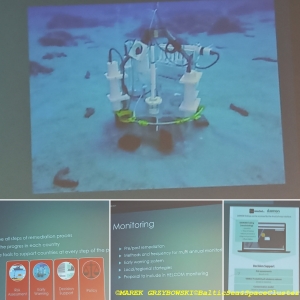
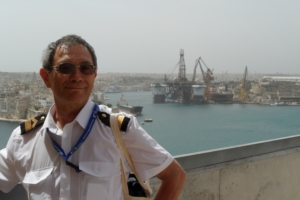 By Marek Grzybowski
By Marek Grzybowski
The international conference inaugurating the MUNIMAP: Baltic Sea Munitions Remediation Roadmap project at the Institute of Oceanology of the Polish Academy of Sciences (member of the Baltic Sea and Space Cluster) took place in February 2024. The Polish Navy Academy and the International Center for Chemical Safety and foreign partners from the countries located on the Baltic Sea are involved in the project.
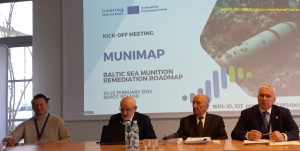
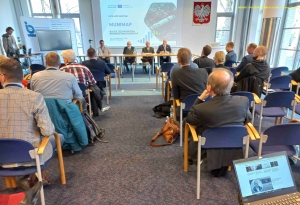
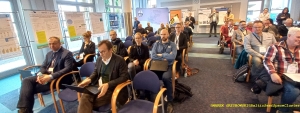
Chemical weapons thrown into the Baltic Sea may hinder the construction of wind farms and other installations in the Baltic Sea. Munitions and chemical weapons threaten fishing vessels, installation vessels and tourists in all countries bordering the Baltic Sea. The Baltic Sea countries are trying to find ways to neutralize the dangerous military remnants lying at the bottom of the Baltic Sea. They will do it together to neutralize chemical substances. The international leader in research and mapping of conventional and chemical munitions on the seabed is the Institute of Oceanology of the Polish Academy of Sciences (IO PAN).
The past and plans for the coming years were presented by, among others: prof. Jacek Bełdowski from IO PAN – coordinator of the MUNIMAP – Baltic Sea Munitions Remediation Roadmap project, implemented under the Interreg Baltic Sea Region Program until 2027; Krzysztof Paturej – president of the International Center for Chemical Safety in Poland (ICCSS); Cdr. Ph.D. Bartłomiej Pączek from the Naval Academy; Dr. Agnieszka Jędruch – assistant professor at the Institute of Oceanology of the Polish Academy of Sciences; prof. Marek Grzybowski – president of the Baltic Maritime and Space Cluster, chairman of the Polish Nautological Society – informed Pulsarowy.pl.
The aim of the MUNIMAP project is to summarize several projects that concerned chemical weapons and conventional munitions in the Baltic Sea. These projects were carried out from 2011 to 2022. These were the Chemsea projects, the Daimon module and Daimon 2.
During these projects, it was proven that chemical and conventional ammunition lying in the Baltic Sea has a negative impact on the environment. Substances released from ammunition enter the ecosystem and cause diseases of fish and marine flora. War chemical waste also threatens fishermen, crews of ships installing wind farms, and tourists relaxing on sea beaches.

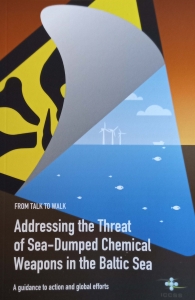
Our project is intended to describe the entire remediation process, i.e. from the moment of appointing responsible people to finding the ammunition, assessing its impact on the environment and removing and destroying the part that threatens the environment.
All Baltic states participate in this project. We intend to collect information from all countries and describe the stages at which they are in this process. We will create a manual for all Baltic countries on what can be done with this ammunition and what the costs of the chemical destruction process will be – said Prof. Jacek Bełdowski – coordinator of the international MUNIMAP project.
– A key element of this project is the involvement of all project stakeholders, said Ambassador Krzysztof Paturej, president of the International Center for Chemical Safety in Poland (ICCSS).
The Naval Academy participates in all the projects mentioned so far by Professor Bełdowski. We participated in the search for ammunition, assessed its condition at the bottom of the Baltic Sea, and participated in the creation of databases of objects located at the bottom. We share this collected knowledge in the next project. – said Cdr. Prof. Bartłomiej Pączek from the Naval Academy in Gdynia.
The Military University of Technology participates in the project. The Naval Academy ensures that all maritime measurements that will be carried out during the project are safe, primarily for crews and vessels.
If we wanted to remove 10 percent of this pollution, we would have to spend about a billion or even over a billion euros and this money should be obtained from the European Union, because these pollutants in the Baltic Sea, including in the Polish economic zone, are not Polish pollution – said the president of the Baltic Sea. Maritime and Space Cluster for Kaziemierz Netka, Edito-in-CHief, Pulsarowy.pl.
Marek Grzybowski said: “I think there are chances to generate this project. I will try to promote this project in the European Maritime Cluster Association, because the problem of chemical pollution, not only post-war and current, is a problem of both the Baltic Sea, the North Sea, the Atlantic and and the Mediterranean Sea. This is our common problem of the European Union, and in a broader sense it is a problem of the whole world.
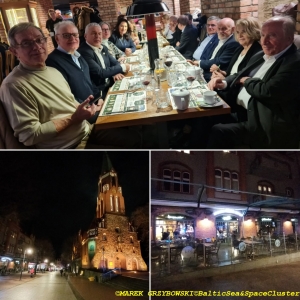
HELCOM informed:
About 40,000 tonnes of chemical munitions were dumped into the Baltic Sea after the Second World War. It is estimated that these chemical munitions contained some 15,000 tonnes of chemical warfare agents (this figure does not take into account the dilution and degradation which have taken place).
They have been mainly dumped mainly item-by-item from ships headed for the designated dumping areas. Materials were thrown overboard in the region of target areas as well as en route from the loading harbours (e.g., Wolgast and Flensburg). It is clear that chemical warfare materials were scattered within the dumping areas marked on sea charts, in their vicinity and on the former transport routes. There still remains uncertainty about the total amounts, types and exact locations of dumped chemical warfare materials.
Dumping Sites:
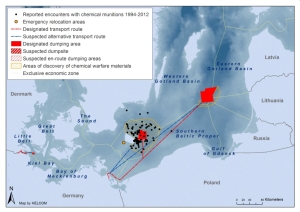
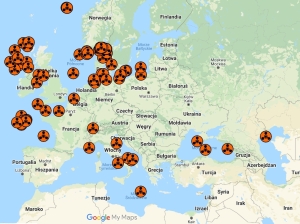
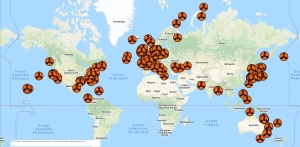
MUNIMAP
MUNIMAP project addresses the threat of dumped munitions in the Baltic Sea and Skagerrak, aiming to accelerate and coordinate remediation efforts at the Baltic Sea Region level.
About MUNIMAP
In an effort to address the persistent threat posed by dumped munitions in the Baltic Sea and the Skagerrak, the MUNIMAP project, or Baltic Sea Munition Remediation Roadmap, embarks on a crucial mission to activate, speed up and coordinate the Baltic Sea munitions remediation. Based on the outcomes of previous successful Interreg projects dealing with dumped munitions, MUNIMAP aims to catalyse, accelerate, and coordinate national processes.

